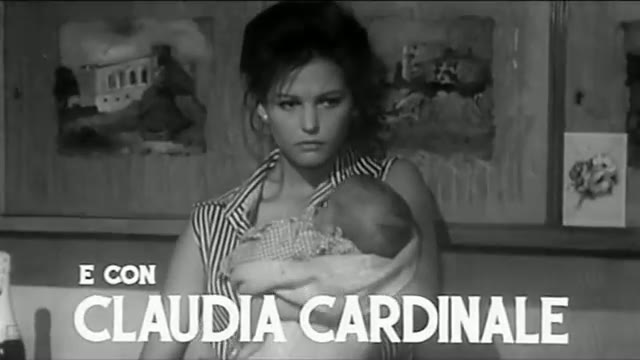Réalisation:
Luchino ViscontiPhotographie:
Giuseppe RotunnoMusique:
Nino RotaActeurs·trices:
Alain Delon, Renato Salvatori, Annie Girardot, Katina Paxinou, Alessandra Panaro, Spiros Focás, Max Cartier, Corrado Pani, Claudia Mori (plus)Résumés(1)
Fuyant la misère, Rosaria et ses quatre fils quittent l'Italie du Sud pour Milan où vit déjà l'aîné Vincenzo. Chacun tente de s'en sortir à sa façon. Mais l'harmonie familiale est rapidement brisée: Rocco et Simone sont tous les deux amoureux d'une jeune prostituée, Nadia. (Les Acacias)
Vidéo (1)
Critiques (3)
Les pièges de la grande ville sont imprévisibles. Pour un frère, l'argent, l'alcool et les prostituées peuvent détruire une carrière prometteuse, une vie et un caractère, tandis que pour un autre, cela peut plutôt révéler son altruisme gigantesque, qui paradoxalemement finit par entraîner sa propre autodestruction et fait plus de mal que de bien (ce n'est pas pour rien que tous les saints de l'Antiquité et du Moyen Âge finissent crucifiés, démembrés, sans tête, etc.). Cependant, la conclusion du film n'appartient à aucun d'entre eux (malgré le dénouement tragique de leur triangle amoureux), mais au discret frère en arrière-plan, qui était jusqu'alors le personnage le moins remarquable de tout le drame. C'est précisément lui qui porte le message qui était très utile pour l'Italie de l'époque, en ces temps difficiles de l'après-guerre "néo-réaliste" - rester fidèle à un travail honnête, ne pas envisager de tentatives risquées pour s'enrichir, ne pas perdre sa volonté et son espoir, ne pas oublier sa famille, serrer les dents et attendre que le monde s'améliore.
()
It can be as the celebrated work wants, but for me, it's simply too long and yes, in some moments even unbelievably theatrical, that it's just ridiculous. Even the final killing isn't very well filmed. Neo-realism is apparently not necessarily realism. The characters may be interesting, but they didn't impress me enough for me to become engrossed in their stories.
()
This could have been a great neorealist drama supported by the presence of great film stars, led by Alain Delon. It could have brought the audience closer to the difference between the lifestyle in the Italian countryside and in the industrial metropolis, as well as the contrast between the value system of the conservative Italian south and the liberal view of the world by the northerners. It could have if Visconti hadn't drowned it in sentiment, overacting, and disgustingly melodramatic sentimentality. I wonder what the truth is behind Italian temperament. I have seen a number of Italian movies where the characters behaved civilly and contrary to the common stereotypes we have about hot-blooded Italians. Here, I find the behavior of the characters strangely affected and exaggerated, and I have a similar problem with historical films by Akira Kurosawa. Where the film was supposed to emotionally climax, i.e., the confrontation between Simon and Nada, the overacting by the actors bothered me so much that the whole impression was ruined. I cannot forgive the traditional criticism of Visconti's repeated flaw, that is, the three-hour runtime. There is a lot that could have been edited out. I also disagree with Visconti's idealization and worship of the "unspoiled" countryside based on tradition and family ties, which he contrasts with the urban lifestyle. The defense of a peculiarly conceived honor, morality, and family cohesion is, in fact, the reason why the mafia and its regional mutations, clientelism, and corruption still thrive in Italy today. Overall impression: 45%. Once again, Luchino, you have not pleased me. I'm not going to please you either... But don't worry, this really is the last time.
()



Annonces